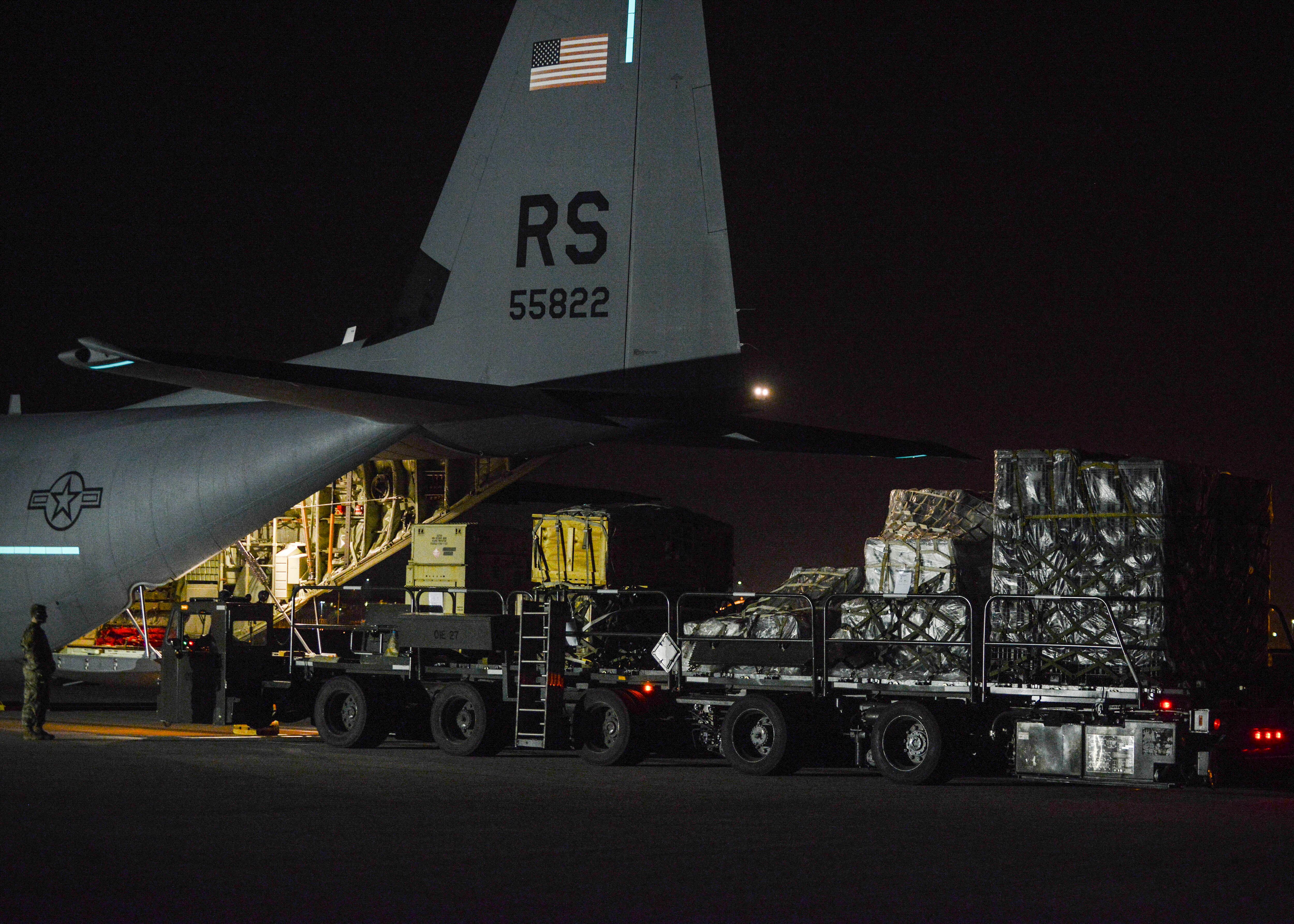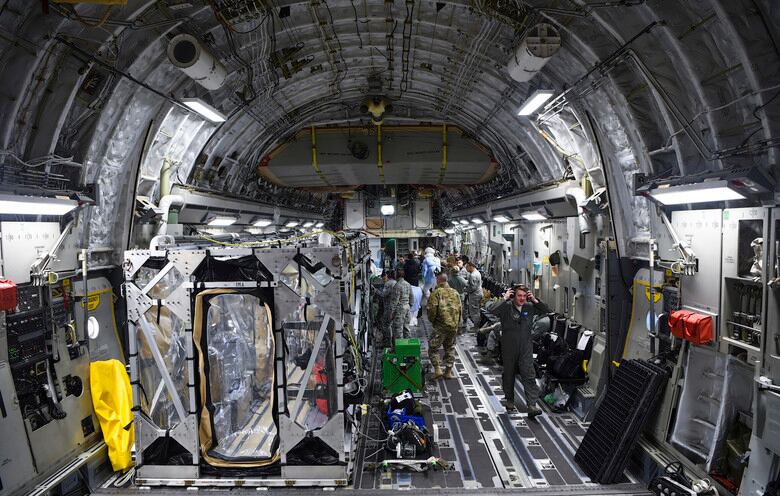WASHINGTON — After two weeks of conducting clandestine missions in the Middle East, it was time to go home.
But before the C-17 Globemaster crew could make it back to Joint Base McGuire-Dix-Lakehurst, N.J., they would need to fulfill one last task: Picking up more than 970,000 COVID-19 swab kits at Aviano Air Base in Italy, and transferring them to Memphis, Tenn., where they would be shipped out across the United States to help quell ongoing demand for coronavirus tests.
RELATED

All told, the journey lasted four days. The crew took off from Al Udeid Air Base in Qatar on April 1, flying into Ramstein Air Base in Germany before landing at Aviano on April 2. They were on the ground in Italy for only about an hour, enough time for airmen to roll pallets stacked high with plastic-wrapped test kits into the body of aircraft.

Then the crew took off again, flying first to Pease Air National Guard Base in New Hampshire and then finally touching down in Memphis on April 3.
“We were very humbled to be tasked with this mission,” said Capt. Tucker Hawley, a C-17 pilot on the crew. Hawley talked to Defense News on Friday just a mere hour after arriving in New Jersey.
“This isn’t just a pandemic in America. This is a world pandemic. We saw firsthand in all the areas we went to — and living in Qatar for two weeks — everything was shut down everywhere,” he said. “To be able to be asked, ‘Hey, we need you guys to pick up a bunch of cargo at Aviano in support of COVID-19 and bring it back to America to be distributed out to different states’ … we were excited and humbled to be a part of that.”
More than 330,000 people in the United States have been confirmed to have coronavirus, according to the latest statistics by the Center for Disease Control and Prevention. However, hospitals and medical centers have struggled to source enough COVID-19 test kits to evaluate all symptomatic patients and have had to turn to pharmaceutical companies in places like Italy to help meet demands.
The April 3 delivery marked the eighth time an Air Force crew has transported COVID-19 test swabs to the United States since the first mission occurred on March 16, said Lt. Gen. Jon Thomas, Air Mobility Command’s deputy commander. So far, about four million swabs have been moved by the service, and another crew is scheduled to conduct a ninth transfer this week.
Once the test swabs arrive in Memphis, which is a FedEx hub, they can be packed onto commercial aircraft for distribution throughout the country. The Air Force has not disclosed the eventual destinations of the swabs it has transported.
In many ways, the flight back from Al Udeid to Joint Base McGuire-Dix-Lakehurst was unremarkable, Hawley said. After two weeks of flying missions together away from the support of family and friends, the five pilots, two loadmasters and two crew chiefs had built the usual rapport that crew members do.
RELATED

But there were differences. For the C-17 crews that transport the swabs out of Aviano, the missions also come at an increased risk of infection, as northern Italy that has been particularly hard hit by coronavirus cases.
Hawley said he and the other crew members took precautions to try to limit their exposure to the virus.
At every stop along the journey, medical personnel met the C-17 crew upon disembarking the aircraft to screen and take the temperatures of each member, he said. When on crew rest, the airmen stayed in their individual hotel rooms and abided by social distancing guidelines. And now that the crew is back in the United States, the members will likely “lay low” and be on the lookout for symptoms like a fever or sore throat.
Like many Americans, Hawley said he knows people who have tested positive for COVID-19. But despite helping to deliver tests that could help doctors identify cases and get patients treatment before it becomes too late, Hawley said the atmosphere of the mission was the same as any other.
“It didn’t really feel different. Everywhere in the pandemic is kind of treating this pandemic the same,” he said. “What we experienced in Qatar, where everything was shut down—we knew we were going right back to America where everything is shut down. We knew what we were going back into. I just think everyone is trying to attack this with the highest of spirits.”
Valerie Insinna is Defense News' air warfare reporter. She previously worked the Navy/congressional beats for Defense Daily, which followed almost three years as a staff writer for National Defense Magazine. Prior to that, she worked as an editorial assistant for the Tokyo Shimbun’s Washington bureau.




